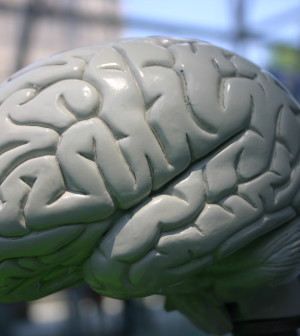- Big Health Care Disparities Persist Across the U.S., New Report Finds
- Teens Often Bullied Online About Their Weight: Study
- Work That Challenges Your Brain Helps You Stay Sharp With Age
- Urine Test Might Spot Head-and-Neck Cancers Early
- Many Seniors Are Overmedicated, But ChatGPT Might Prevent That
- Antipsychotics May Do Great Harm to People With Dementia: Report
- Two-Drug Combo Curbs Drinking for People Battling Severe Alcoholism
- Most Homeless Americans Are Battling Mental Illness
- FDA Recalls Heart Failure Devices Linked to Injuries and Deaths
- COVID Does Not Spur Asthma in Kids, Study Finds
Single Gene May Predict Mental Decline After Heart Surgery


SUNDAY, Oct. 13A certain gene appears to increase risk for mental decline after heart surgery, a new study suggests.
Between 30 percent and 50 percent of heart surgery patients have a decrease in mental function after heart surgery, but it hasn’t been known if this is a side effect of the surgery and anesthesia, or a progression of existing neurologic disease, the researchers said.
Their study included 233 elderly, white patients whose mental function was assessed before heart surgery and five years after.
Those with the APOE4 gene were more likely than those without the gene to experience long-term memory loss, attention problems and difficulty understanding spoken or written words five years after the surgery, according to the study scheduled for presentation Sunday at the annual meeting of the American Society of Anesthesiologists in San Francisco.
“Our findings suggest that the long-term cognitive decline previously seen after surgery is related more to the patient’s genetic makeup than to the surgery itself,” Dr. Karsten Bartels, who helped conduct this study while a fellow in cardiothoracic anesthesiology and critical care medicine at Duke University Medical Center, said in a society news release.
“Knowing which patients have the APOE4 genotype can help doctors assess the risk for cognitive problems following surgery, ultimately allowing patients to make better-informed decisions and permitting doctors to direct strategies to protect the brain after surgery,” he explained.
People are born with the APOE4 (apolipoprotein E4) gene, which can be detected in a blood test. Apolipoproteins play an important role in cholesterol metabolism and inflammation.
APOE4 has been shown to increase the risk of developing Alzheimer’s disease.
Data and conclusions presented at medical meetings are typically considered preliminary until published in a peer-reviewed medical journal.
More information
The U.S. National Heart, Lung, and Blood Institute has more about heart surgery.
Source: HealthDay
Copyright © 2024 HealthDay. All rights reserved.










